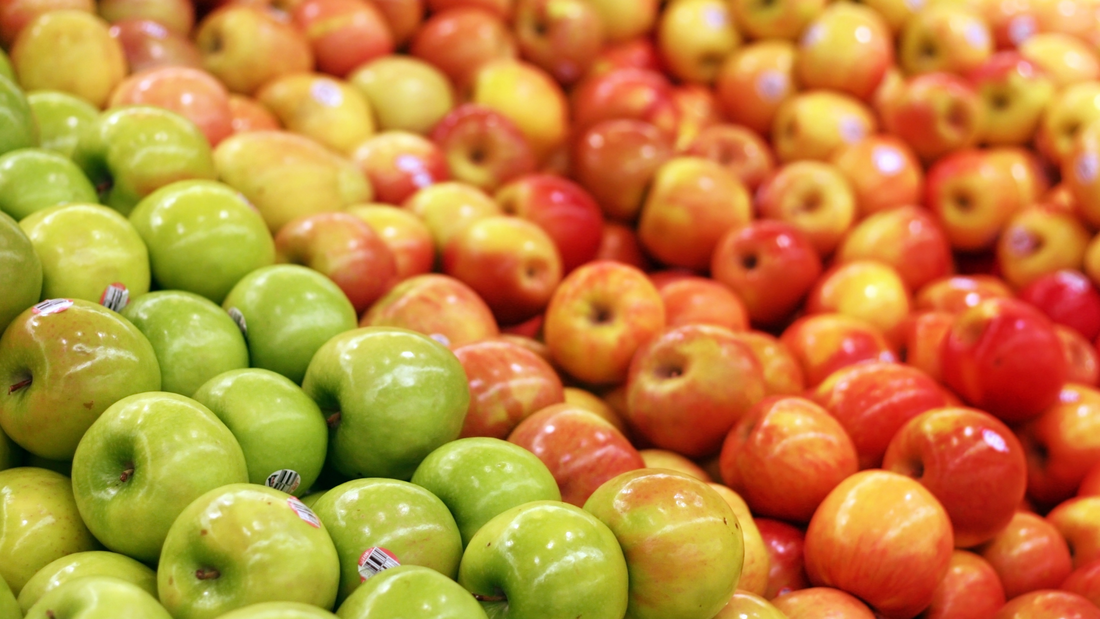Plus check out R2C exclusive apple recipe: Caramel Apple Tartlet
Apples are one of the most popular and widely consumed fruits in the world. They come in various colors, flavors, and textures, making them a versatile ingredient in both sweet and savory dishes. While you may think you know everything about apples, here are 12 intriguing facts that will surely surprise you.
1. Ancient Origins:
Apples have a rich history dating back thousands of years. They were first cultivated in Central Asia around 4,000 years ago and were highly valued by ancient civilizations such as the Egyptians, Greeks, and Romans.
2. Diverse Varieties:
Did you know that there are over 7,500 known apple varieties worldwide? Each variety has its unique characteristics, including taste, texture, and color. Some popular varieties include Granny Smith, Gala, Honeycrisp, and Fuji.
3. Nutritional Powerhouse:
Apples are not only delicious but also packed with essential nutrients. They are a great source of dietary fiber, vitamin C, and antioxidants. Eating apples regularly can help boost your immune system and promote good digestive health.
4. An Apple a Day Keeps the Doctor Away:
You've probably heard the saying "an apple a day keeps the doctor away." While it may not be entirely true, apples do offer numerous health benefits. Studies have shown that regular apple consumption can lower the risk of heart disease, certain types of cancer, and even improve lung function.
5. Apple Seeds Contain Cyanide:
Yes, you read that right! Apple seeds contain a compound called amygdalin, which can release cyanide when ingested in large quantities. However, you would need to consume a significant number of apple seeds for it to be harmful. So, don't worry about accidentally swallowing a few seeds.
6. The Science Behind Browning:
Have you ever wondered why apple slices turn brown when exposed to air? This phenomenon is known as enzymatic browning. When the cells in the apple are damaged, an enzyme called polyphenol oxidase reacts with oxygen, resulting in the brown color. To prevent browning, you can dip apple slices in lemon juice or store them in airtight containers.
7. Apple Trees Need Cross-Pollination:
Unlike some fruit trees, apple trees require cross-pollination to produce fruit. This means that they need pollen from a different apple variety to fertilize their flowers. Bees and other insects play a crucial role in transferring pollen from one tree to another, ensuring a bountiful apple harvest.
8. The World's Largest Apple Producer:
China is the largest producer of apples in the world, accounting for nearly half of the global production. Other top apple-producing countries include the United States, India, Russia, and Poland.
9. Apple Pie, Anyone?
Apple pie is an iconic American dessert loved by many. It dates back to the 14th century, and the first recorded apple pie recipe was written in England in 1381. Today, apple pie remains a classic comfort food enjoyed around the world.
10. Apple Symbolism:
Throughout history, apples have been associated with various symbolic meanings. In Greek mythology, apples were considered a symbol of love and beauty. In Christianity, the apple is often depicted as the forbidden fruit in the Garden of Eden.
11. Apple Festivals:
Many regions around the world celebrate apples with vibrant festivals. One of the most famous is the National Apple Harvest Festival held in Pennsylvania, USA. These festivals showcase different apple varieties, offer apple-themed activities, and provide a platform for local farmers to promote their produce.
12. An Apple for Every Season:
Thanks to modern storage techniques, apples are available year-round. However, different apple varieties have specific harvest seasons. For example, Honeycrisp apples are typically harvested in the fall, while Fuji apples are harvested in late summer. Enjoying apples in their peak season ensures the best flavor and freshness.
Apples are not only delicious but also fascinating fruits with a rich history and numerous health benefits. From their ancient origins to their diverse varieties and symbolic meanings, there's so much more to discover about these beloved fruits. So, next time you bite into an apple, remember these 12 intriguing facts and appreciate the wonders of nature's bounty.
*****
By Chef Julian Pancer, The Chef Upstairs

